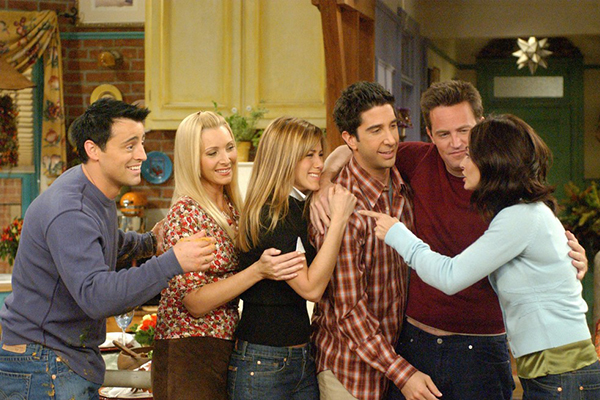Last December, Joyce Carol Oates stoked yet another Twitter controversy when she suggested that diverse writers quit complaining about representation and simply get on with the job – starting their own publishing houses being one of her recommendations. What she seemed to articulate was a pervasive view about our ‘ungratefulness’ as marginalised peoples (thought of here in raced terms, but also extending to sexuality, gender, class and a whole host of other political identity categories). But, when I read this alongside a number of friends’ annual ‘best of’ reading lists, that defiantly featured only writers of colour, I got the sense of antagonistic sides that were irreconcilable. Which is something that I don’t think is helpful for the future of politics, art, society.
This brings me to a confession – over the holidays I rewatched Friends on Netflix, and liked it. Liked it even though it is misogynistic, white, bourgeois trash. Quite simply, it was a guilty pleasure. This was not in spite of its politics but because of them, which gave me something to negate. That is, in critiquing the show, I was moved beyond my own embodied liberalism to participate in a dialogue that is truly progressive, open and engaging. This is a complementary moral position to take alongside advocating for reading, watching and listening diversely, precisely because we have to keep articulating what is the substance of the work, not only the identity position of the author.
As a parallel, we could turn to The Heart of Darkness, which has a vexed relationship as a great work of literature as well as a racist fantasy. And so, one can read Chinua Achebe’s response to Joseph Conrad in ‘An Image of Africa’. In the closing passages of that essay, Achebe yokes ‘Africans’ with ‘Indians’, suggesting that both are often depicted as peoples with dialects rather than languages. He flattens them into solidarity against the European. Personally, I appreciate the gesture but it is not quite right, precisely because the places have different histories, ecologies, social relations. Achebe does not speak for me as an Indian, but he speaks to me as one. To say as much is not about anti-blackness but about Indian autonomy. The fault is in his undialectical thinking, which would claim power resides only with the master rather than in between the complex meridians of privilege as they have been historically created in the world. And so, as a response from our contemporary position, the task might be about creating an aesthetic language that re-politicises itself outside of liberalism, and engages power in a dialogue that is attentive to all sides of the debate. As Barack Obama said of The Heart of Darkness:
… the book teaches me things … about white people, I mean. See, the book’s not really about Africa. Or black people. It’s about the man who wrote it. The European. The American. A particular way of looking at the world.
In that way, we cannot just provoke shame or guilt or anger in white readers, or ourselves, for not living up to some high moral standard. We cannot just turn off Friends or hope that The Heart of Darkness goes away on its own accord. In thinking this way, we only repeat the paradigm. We only negate rather than create. It is time to break that cycle, even as we are tired of explaining ourselves, even as we want representation, even as we struggle in ways that are over and above normative writers. If nothing else, one must grapple with the inability of texts to do much at all, to find a way forward to the existential dilemma that confronts every one of us who believes in the importance of writing in the first place.
In that way, to simply refuse popular culture or the literary classics does a disservice to us. We miss out on learning about ourselves. The balm lies in critique. We need to redefine our reading and not simply based on politics but on philosophy and experience, on redefining writing as a field. As part of that, we need a better theorised language of aesthetics. We need to critique these texts in new terms of our own making, rather than repeat reading practices that are from empirical masters. In other words, it is not just a question of what we read but how, which will allow us to switch off people like Oates, as we surely must do for a new hope in writing itself.
Image: Friends / seriemaniacos






